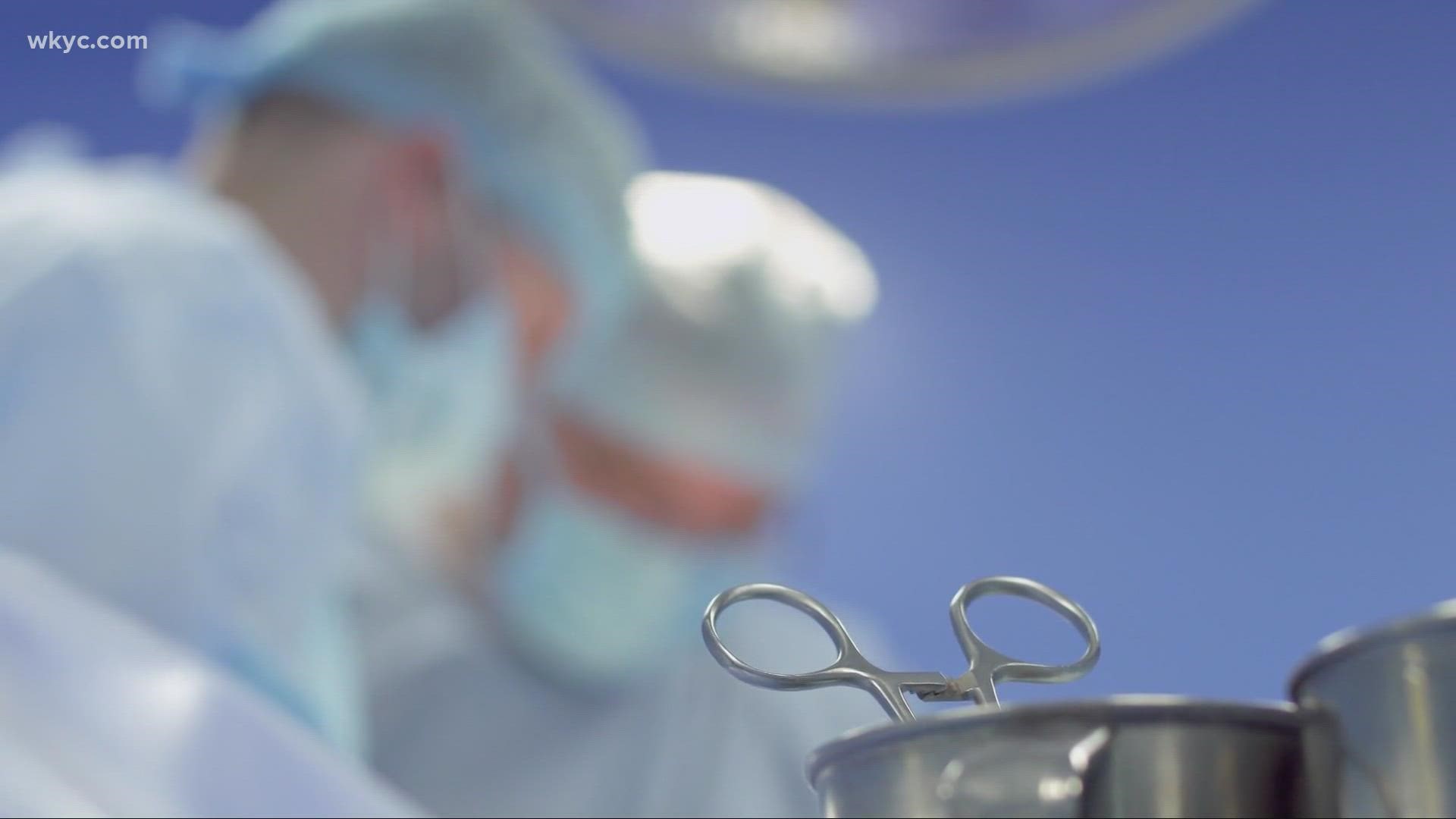EASTLAKE, Ohio — Mike Ganim was five days away from life-saving kidney transplant surgery when his wife, Debi, got the devastating news.
The surgery would not happen.
Debi Ganim said they were informed on October 8 that Cleveland Clinic implemented a new safety policy that required both living donors and organ recipients to be vaccinated against COVID-19.
Mike is fully vaccinated, but the donor is not.
"It made us feel like we were back to square one," said Debi. "I've been terrified. Sometimes I have my moments that I don't think about it, but it comes back, and I think, 'What's going to happen?'" she said, with her voice cracking with emotion.
Nearly two years ago, Mike learned that his polycystic kidney disease was so advanced, doctors declared that he needed a new kidney.
“’It’s transplant time. No dialysis. We need a transplant, and we need it as soon as possible,’” Debi recalled the doctors telling her.
Hope for a donor began to wane, when doctors suggested that she make her story public. So Debi posted a request on her Facebook page, asking for anyone who might be willing, to be tested as a potential donor. The post got more than 100 shares, and she was humbled by the dozens of messages of support. Friends, relatives, even strangers offered to take the blood test to find out if they were an organ donation match with Mike.
Weeks later, Debi received a message on Facebook. “Oh my gosh. I cannot believe we are finally reading the words, ‘I am your match,’” Debi recalled.
The message was from a longtime acquaintance, Sue George, whose daughter is a former third grade student of Debi's, some 13 years ago, but they had kept in touch over the years.
“I am your stranger!” George told her with a laugh. “But I just didn’t want to tell you, because I didn’t want to disappoint you, but I’m trying. I’m trying,” she told Debi.
After months of pre-operation procedures and preparation, the crucial surgery was scheduled on October 13. But last Friday, the Ganims were informed that the surgery would not proceed.
"We were blindsided," said George, who said that doctors knew all along that she was not vaccinated, and no one said that it would be a problem. George said that getting the vaccine now is not an option. "I don't want to get the vaccine," she explained. "I've got reasons -- medical, religious, and also freedom."
Debi and Mike Ganim are still hoping that there will be a way to proceed with transplant surgery, if perhaps, George undergoes her portion of the surgery at another hospital in Cleveland or Columbus.
"It's just wrong in so many ways," said Debi, of the Clinic's decision to cancel Mike's surgery. "All because of a policy that was just decided."
3News reached out to the Cleveland Clinic to see if Ganim's surgery can be grandfathered into its new policy, and received the following statement:
"The health and safety of our patients is our top priority. Cleveland Clinic has recently developed safety protocols for solid organ transplantation that require COVID-19 vaccination to be an active transplant candidate or living donor. Vaccination is particularly important in these patients for their safety.
Living donation for organ transplantation has been a life-saving treatment, but it is not without risks to the donor. For the living donor, preventing COVID-19 infection around the time of their surgery and recovery is crucial. We continually strive to minimize risk to our living donors, and vaccination is an important component to ensure the safest approach and optimal outcomes for donors.
For organ transplantation using a living donor, which involves the living donor undergoing a scheduled surgery, we are requiring COVID-19 vaccination for both donor and recipient before we can proceed with the surgery, for the safety of both.
The FDA-authorized vaccines have been determined to be safe and effective and are the best way to prevent severe illness and death from COVID-19."
More coverage:

